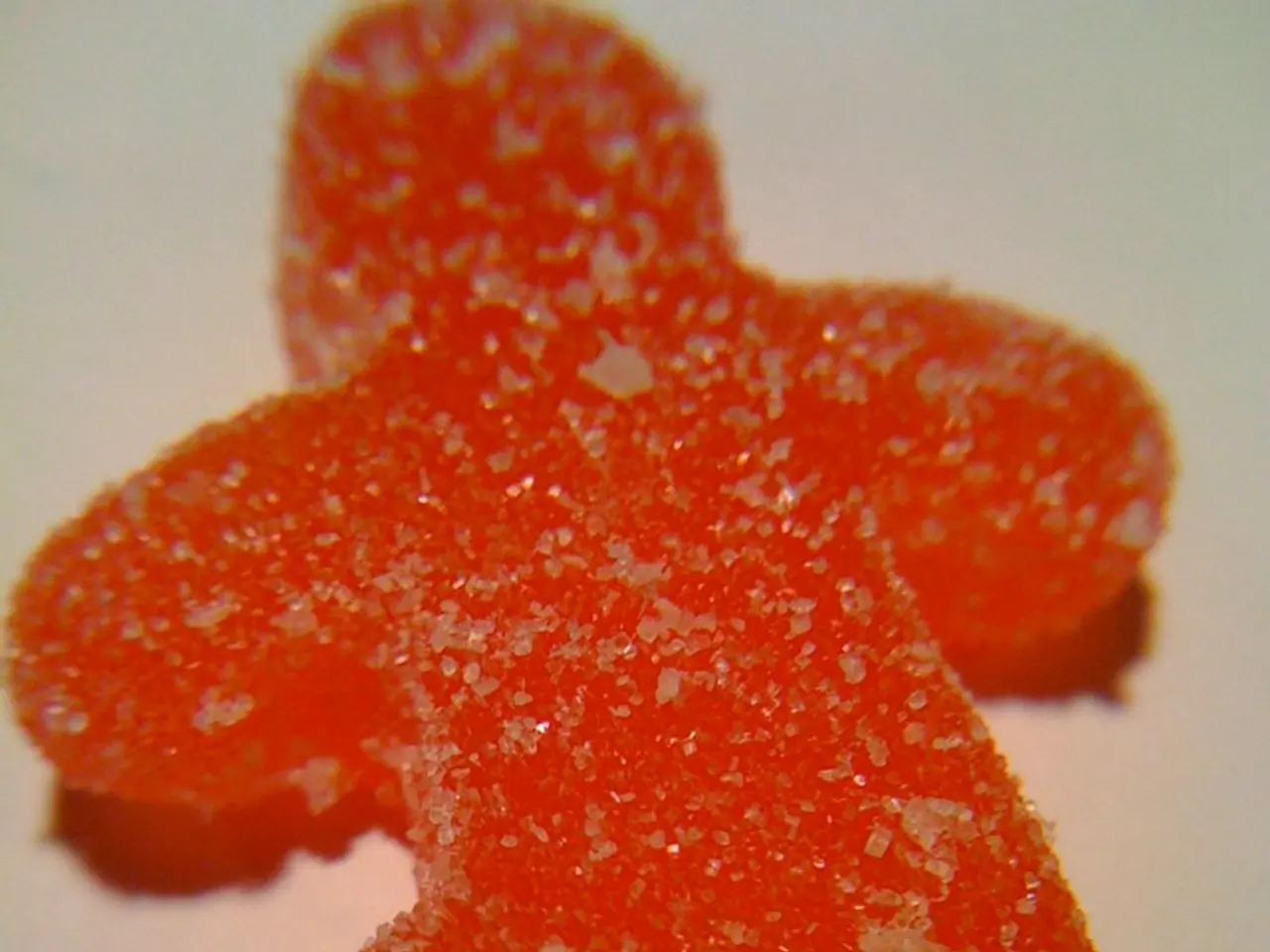Crafting Jellied Treats for a Loved One Suffering from Dementia
Jelly Drops, a colourful and visually appealing snack, are proving to be a beneficial addition to the diets of dementia patients. These bite-sized treats offer a fun and tasty way to stay hydrated, promoting self-care and cognitive stimulation for both caregivers and patients.
Making Jelly Drops
To create these delightful drops, you'll need sugar-free jelly crystals, agar-agar powder or gelatin powder, water, and mini ice cube trays or molds. First, boil water, then add the chosen powder and stir until fully dissolved. Next, add the sugar-free jelly crystals and continue stirring until they've completely dissolved. Remove the pot from heat, let it cool, pour into molds, let cool at room temperature, and finally, chill in the refrigerator.
When choosing a jelly, opt for one that dissolves easily in hot water and sets quickly in the refrigerator, such as Jell-O or Hartley's.
Serving Jelly Drops
To serve Jelly Drops in an enjoyable way, focus on making the experience appealing, easy, and supportive of hydration needs. Present them attractively, as their colourful appearance can stimulate interest and make eating fun for those with dementia. Serve them at room temperature or slightly chilled to enhance the texture and flavour, making them more palatable without causing discomfort.
Offer them regularly and independently if possible, as Jelly Drops help support independent hydration. Placing them where they can be easily reached encourages self-care. Use small, manageable amounts, as their bite-sized jelly form makes them easy to eat without utensils, reducing frustration.
Accompany them with calm encouragement, gently reminding or encouraging the person to try the Jelly Drops as a tasty way to stay hydrated. Incorporate them into the daily routine, offering them at consistent times to help build a habit, making hydration part of their daily care.
Nutritional Benefits
Jelly Drops are about 95% water, sugar-free, and vegan, designed specifically to help those who struggle with water intake, such as older adults with dementia. They can improve the nutrition of people with dementia who may have difficulty eating or may not have much appetite, as they can be made with fruit juice.
Consider adding nutrition supplements like protein powder, vitamins, or electrolyte powder to the jelly mixture before pouring it into the mold to boost their nutritional value. Experiment with different flavours like fruit juice, lemonade, or herbal tea to make the jelly drops more appealing.
Storage and Presentation
Keep the drops refrigerated until they are ready to be eaten. Serve them on a bright and colourful plate, in small portions, and consider experimenting with textures and shapes to make them even more appealing.
Jelly drops can be stored in an airtight container in the refrigerator until ready to serve. The way serving them can positively impact a loved one's mood and overall experience is by serving with a smile and a positive attitude. Offer them as a snack or dessert.
Jelly drops can be made in a soft, easy-to-swallow consistency that reduces the risk of choking for people with dementia who may experience difficulty swallowing. They are a good option for those with dementia who struggle with solid foods or have difficulty swallowing.
In conclusion, Jelly Drops offer a simple yet effective solution to promote hydration and nutrition for dementia patients. By making them an enjoyable and manageable part of their daily routine, we can help improve their quality of life and overall well-being.
- Jelly Drops, designed for hydration, contain about 95% water and are sugar-free, making them suitable for vegan diets and ideal for older adults with dementia who struggle with water intake.
- To boost the nutritional value of Jelly Drops, consider adding nutrition supplements like protein powder, vitamins, or electrolyte powder to the jelly mixture before pouring it into the mold.
- Nutrition is essential for both men's health and women's health, especially during the aging process, and Jelly Drops can be a beneficial addition to a dementia patient's diet due to their high water content and nutritional flexibility.
- Cooking can be part of a healthy lifestyle, and incorporating Jelly Drops into food-and-drink recipes can offer a fun, colourful, and versatile option for promoting health-and-wellness, hydration, and cognitive stimulation.
- By offering Jelly Drops in an appealing and easy-to-eat format as part of a dementia caregiver's routine, we can help promote self-care and support their loved one's mental and physical well-being in a positive, enjoyable way.




